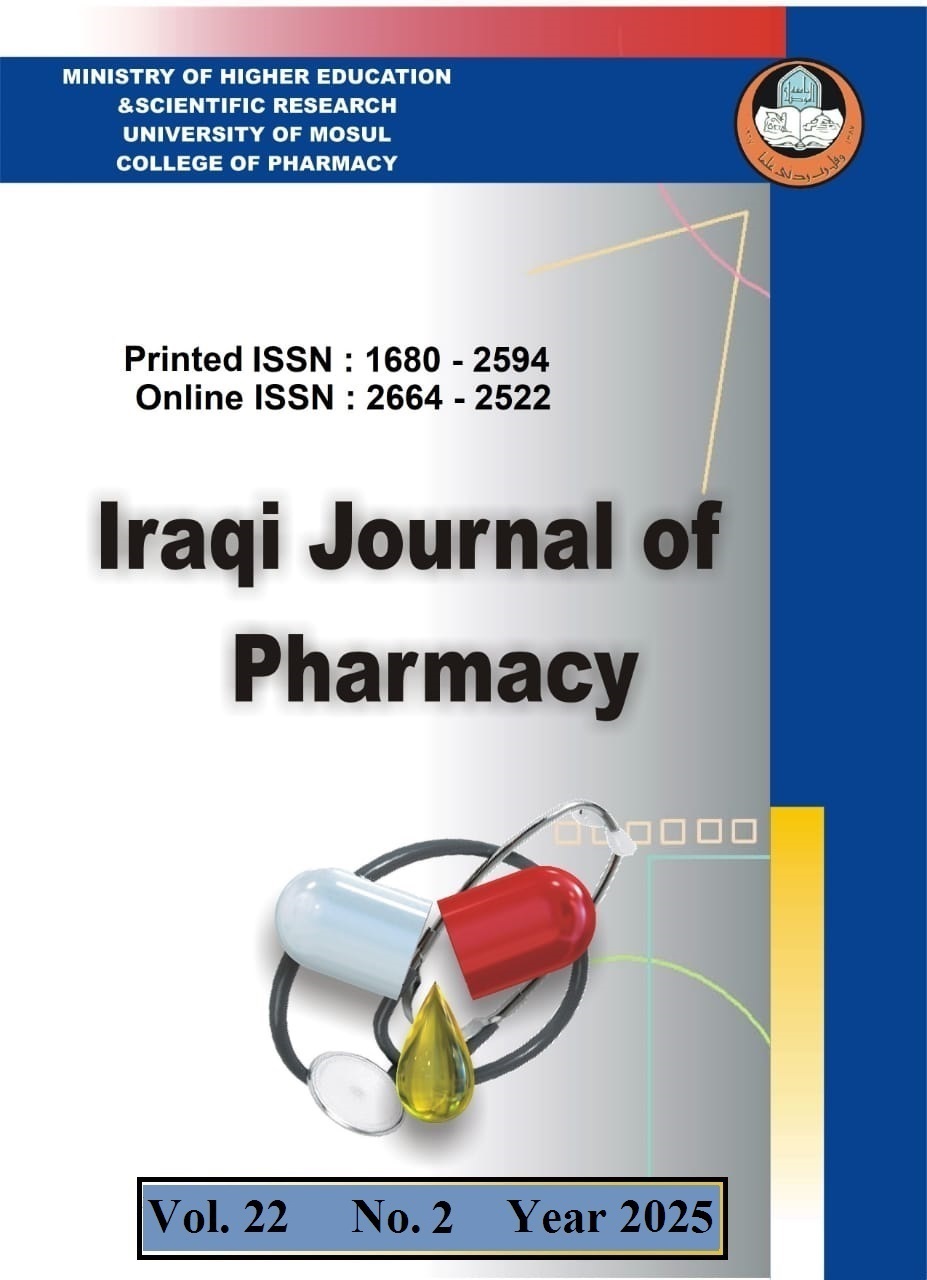Energy Drinks: knowledge and Practice Among Non-Medical University Students
Abstract
Background: Despite their adverse impacts on human health, energy drinks (EDs) are becoming more and more popular, especially among young adults, due in part to the advertisement campaigns of manufacturing companies. This study aims at assessing the consumption practice of EDs among students at non-medical colleges along with their knowledge about EDs. Methods: The study design was cross-sectional in which an online questionnaire was distributed among students at non-medical colleges at the University of Mosul. The questionnaire included questions about knowledge and the practice of consumption of EDs in participants. The collected data were analyzed and presented as frequencies and percentages, in addition to assessing the correlation between knowledge and various characteristics of the students. Results: A total of 1039 students completed the questionnaire, more than one-third were in the 4th year. More than 80% of the participants knew what EDs were but only 30% were knowledgeable about their ingredients. Although the majority were aware that EDs have negative effects, only 45% knew that EDs cause insomnia. More than 70% of the students did not drink EDs, and among those who admitted drinking, one-third declared consuming 1-3 times monthly and more than two-thirds preferred sugar containing products. Helping to study was the main motive behind drinking as reported by the students while disliking EDs was the main reason given by those students who do not consume EDs. Gender, weekly income and being a consumer of EDs were found to have significant effects on the knowledge of the students. Conclusions: The level of knowledge was found to be low, which necessitates increasing the awareness of the public through official campaigns and warning labels on EDs.
References
- Al-Waalan T, Al Khamees R. Energy Drinks Consumption Patterns Among Young Kuwaiti Adults. In: SHS Web of Conferences. EDP Sciences; 2021. p. 1015.
- Alabbad MH, AlMussalam MZ, AlMusalmi AM, Alealiwi MM, Alresasy AI, Alyaseen HN, et al. Determinants of energy drinks consumption among the students of a Saudi University. Journal of family & community medicine. 2019;26(1):36.
- Alsunni AA, Badar A. Energy drinks consumption pattern, perceived benefits and associated adverse effects amongst students of University of Dammam, Saudi Arabia. Journal of Ayub Medical College Abbottabad. 2011;23(3):39.
- Arria AM, Bugbee BA, Caldeira KM, Vincent KB. Evidence and knowledge gaps for the association between energy drink use and high-risk behaviors among adolescents and young adults. Nutrition reviews. 2014;72(suppl_1):8797.
- Arria AM, OBrien MC. The high risk of energy drinks. Jama. 2011;305(6):6001.
- Aslam HM, Mughal A, Edhi MM, Saleem S, Rao MH, Aftab A, et al. Assessment of pattern for consumption and awareness regarding energy drinks among medical students. Archives of Public Health. 2013;71(1):111.
- Casuccio A, Bonanno V, Catalano R, Cracchiolo M, Giugno S, Sciuto V, et al. Knowledge, attitudes, and practices on energy drink consumption and side effects in a cohort of medical students. Journal of addictive diseases. 2015;34(4):27483.
- Cencek P, Wawryk-Gawda E, Samborski P, Jodowska-Jdrych B. Energy drinks-consumption and awareness among students of Medical University of Lublin. Current Issues in Pharmacy and Medical Sciences. 2016;29(4).
- Clauson KA, Shields KM, McQueen CE, Persad N. Safety issues associated with commercially available energy drinks. Journal of the American Pharmacists Association. 2008;48(3):e5567.
- DeCoster J, Gallucci M, Iselin AM. Best practices for using median splits, artificial categorization, and their continuous alternatives. Journal of Experimental Psychopathology. 2011;2(2):197209.
- Higgins JP, Tuttle TD, Higgins CL. Energy beverages: content and safety. In: Mayo clinic proceedings. Elsevier; 2010. p. 103341.
- Kaminer Y. Problematic use of energy drinks by adolescents. Child and Adolescent Psychiatric Clinics. 2010;19(3):64350.
- Milazzo NA, Cao DX, Diwaker G, Thornton JA, Shah SA. A survey of energy drink consumption and associated adverse effects in air force personnel. Military Medicine. 2021;186(12):e1438.
- Mohammed AH, Blebil A, Selvaraj A, Ang ZJX, Chong CY, Chu VRS, et al. Knowledge, Consumption Pattern, and Adverse Effects of Energy Drinks among Asian Population: A Cross-Sectional Analysis from Malaysia. Valds-Ramos R, editor. Journal of Nutrition and Metabolism. 2022;2022:3928717.
- Ragsdale FR, Gronli TD, Batool N, Haight N, Mehaffey A, McMahon EC, et al. Effect of Red Bull energy drink on cardiovascular and renal function. Amino acids. 2010;38(4):1193200.
- Rath M. Energy drinks: what is all the hype? The dangers of energy drink consumption. Journal of the American Academy of Nurse Practitioners. 2012;24(2):706.
- Scuri S, Petrelli F, Tesauro M, Carrozzo F, Kracmarova L, Grappasonni I. Energy drink consumption: a survey in high school students and associated psychological effects. Journal of preventive medicine and hygiene. 2018;59(1):E75.
- Seifert SM, Schaechter JL, Hershorin ER, Lipshultz SE. Health effects of energy drinks on children, adolescents, and young adults. Pediatrics. 2011;127(3):51128.
- Shanshal SA, Noori AS, Ghazi JA, Dahham AT, Saleh ASM, Al-Qazaz HK. Impact of peptic ulcer disease on the quality of life: A Cross Sectional Study. Research Journal of Pharmacy and Technology. 2022;15(7):326772.
- Subaiea GM, Altebainawi AF, Alshammari TM. Energy drinks and population health: consumption pattern and adverse effects among Saudi population. BMC Public Health. 2019;19(1):112.
- Vercammen KA, Koma JW, Bleich SN. Trends in energy drink consumption among US adolescents and adults, 20032016. American journal of preventive medicine. 2019;56(6):82733.








